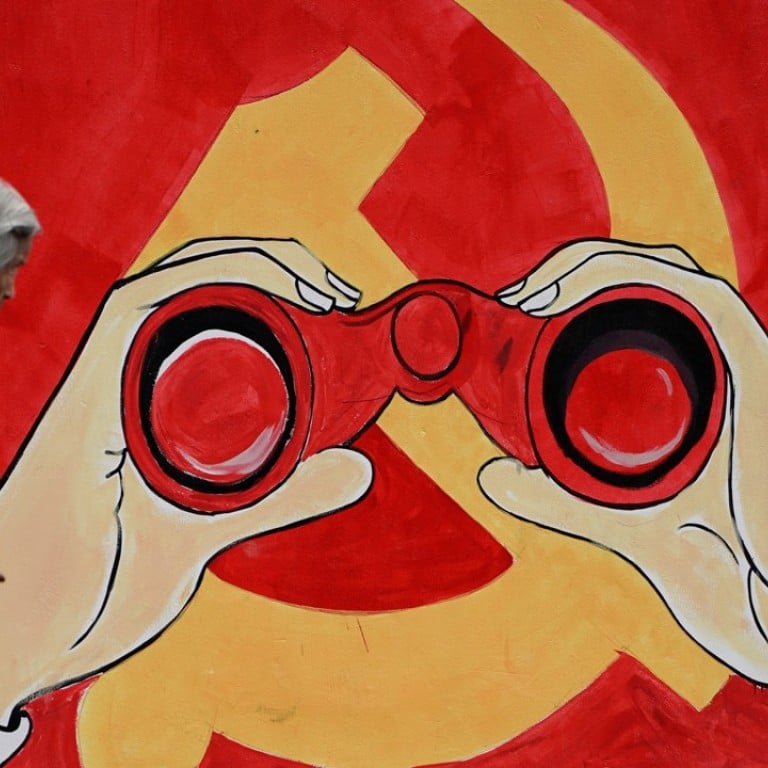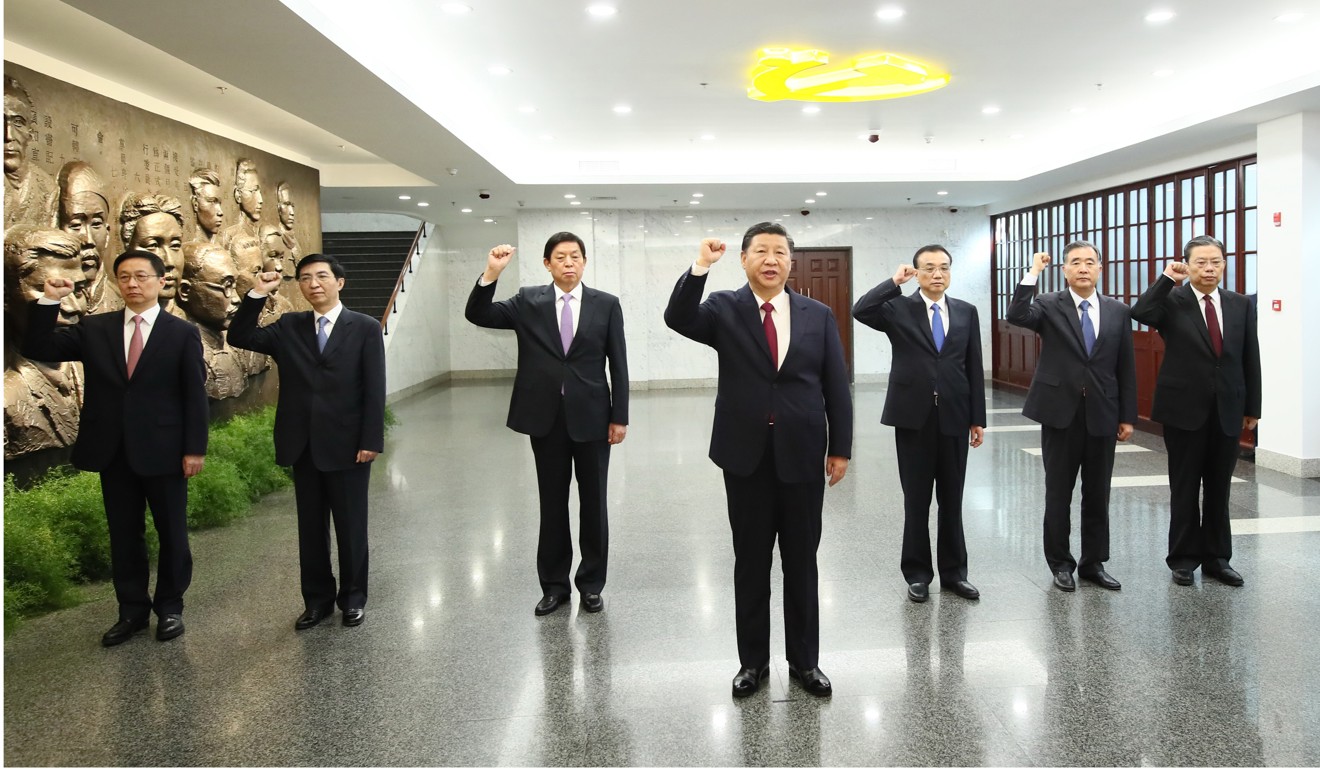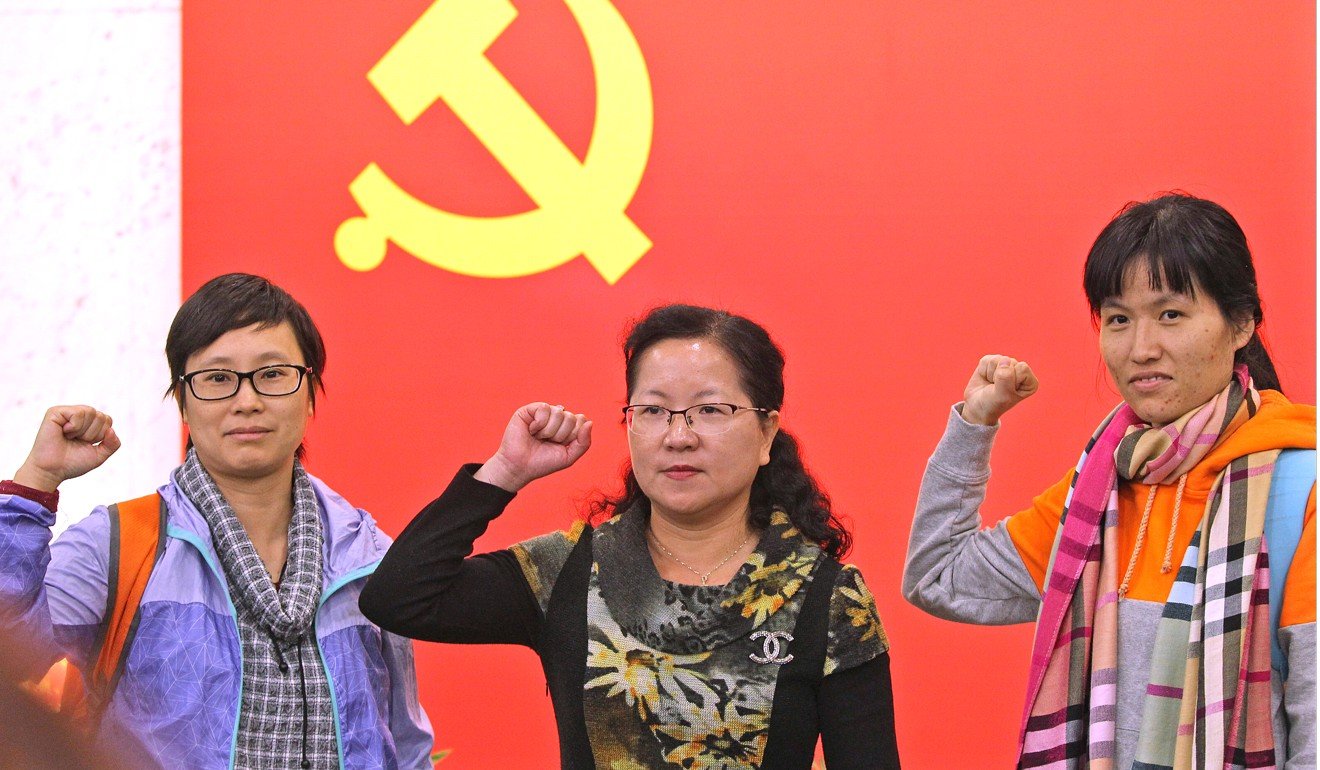
Xi Jinping seeks to strengthen grass roots reach through Communist Party branches
Strengthened local membership seen as key to delivery of reforms and management of trade war fallout
Amid an escalating trade war with the United States and rising concern at home over the lack of reform progress, Chinese leadership is focusing on expanding the Communist Party’s reach at grass roots level.
A renewed effort has been made to build and strengthen party cells across the country. This is to ensure Beijing’s policies are faithfully carried out at the local level. It is also to strengthen social control as China prepares itself for more clashes with the US, observers said.
President Xi Jinping chaired a Politburo meeting on September 21 when the party’s most powerful 25 members met to discuss key policy direction.
The statement issued afterwards made no mention of trade war or reform – if they have been discussed at all. The focus is sharply on how to build and strengthen party organisations and expand into areas where previously the party has had only a token presence.
“The building of party cells should not only be strengthened in traditional sectors but also be extended to new areas. [We need to] continuously expand their coverage,” the statement said.
Party branches are urged to improve their organising capacity and leadership to “cement the organisational foundation of the party’s long-serving reign.”
Xi Jinping says trade war pushes China to rely on itself and ‘that’s not a bad thing’
Experts said the shoring up of local party cells is an attempt by the top leadership to carry forward policy programmes amid growing doubts within the party and society about China’s direction.
“The natural response to [those doubts] is to mobilise party members and the masses. That’s Xi’s important weapon to continue to carry forward his programmes,” said David Zweig, a political-science professor at the Hong Kong University of Science and Technology.
“Grass-roots party branches are the endpoint of the party’s tentacles into society,” Zweig said, referring to their role in carrying out decisions from the top leadership, which often meet resistance from local authorities or interest groups.
“That’s always been the party branches’ job – it’s the way the party moves society in the direction that it wants it to go. If it can’t mobilise the party branches, then it can’t mobilise society,” he said.
The party charter already requires any organisation with three or more party members to set up a party cell. Most of the time though, these party branches have existed in name only – seldom holding meetings or activities.

Xi has made revamping the party organisation – together with his sweeping crackdown on corruption – a priority since coming to power nearly six years ago. The erosion of the party’s control at grass roots level has led to ill discipline and loss of ideology purity among party cadres across all ranks, the president believes.
Under a determined Xi, the party’s presence has been greatly expanded in areas where it previously had only played a token role – such as in private and foreign joint ventures and on the boards of listed companies. The party also revised its charter last autumn to add an additional clause to strengthen the work of grass root party organisations.
The need now becomes ever more acute for Xi as the country grapples with a slowing economy and an escalating trade war with the world’s sole superpower.
China to cut tariffs on some big-ticket imports as it braces for trade war impact
As China marks the 40th anniversary of its opening up and reform, the president is under increasing pressure to deliver on a series of reform promises ranging from sustainable growth to a cleaner environment to better public services and welfare. All these missions require the compliance of provincial or even county-level officials.
Chen Daoyin, a political analyst in Shanghai, agreed tensions with the US added urgency to Xi’s moves to boost the party’s reach and control.
In his first public appearance after returning to Beijing from the party’s annual summer retreat in Beidaihe in mid-August, Xi ordered the country’s armed forces to “extensively strengthen” party building at a meeting of the Central Military Commission.

“This is the party’s tradition – it has always emphasised party building when it is at a difficult, critical juncture, in a bid to beef up the party’s leadership,” Chen said.
But Chen warned that while strengthening party building in local governments and public institutions might help push party policies to an extent, doing so in the non-public sector, such as private enterprise and foreign joint ventures, could backfire.
“They have their own laws of operation and governance and do not need more interference from the party,” he said.
“Party cells not only increase their operational costs, but also bring trouble into their decision-making and implementation.”
German trade body warns firms may pull out of China over Communist Party pressure
By the end of 2016, 70 per cent of foreign-funded firms and 68 per cent of all private businesses in China had set up party branches, according to official figures.
Some groups have since publicly raised their concerns. In November, the Delegations of German Industry and Commerce in China warned that members of the German business community in the country were concerned about the setting up of party cells in their companies.
“Should these attempts to influence foreign-invested companies continue, it cannot be ruled out that German companies might retreat from the Chinese market or reconsider investment strategies,” it said at the time.

